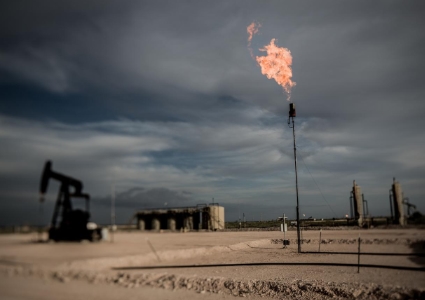Pledging
These are the original issues in this subcategory

You May Pledge Your Support For This Issue With A Monetary
Donation And By Writing A Letter To Your Representatives
- ORPHANED OIL WELLS
- OFFSHORE OIL DRILLING
- FRACKING

Hydraulic fracturing, or fracking, is a process that uses pressurized liquid to crack rock 8,000 feet below the surface so hydrocarbons such as natural gas can be extracted. This technique calls for several million gallons of water mixed with sand and toxic chemicals to be injected at high pressure into a well to create fractures deep underground. After this mixture is removed, these cracks form conduits along which natural gas and petroleum migrate into the well for extraction. After a well is depleted, it is usually filled with wastewater from other fracking operations, creating a permanent disposal site for this toxic byproduct. About 1.7 million fracking wells have already been drilled in 21 states. Studies show that half a barrel of wastewater is generated for each barrel of oil extracted. Fracking operations have produced about 45 billion gallons of wastewater since 2005, an average of about 3 million gallons per well. Exempted from the protections of the 1974 Safe Drinking Water Act by the Bush administration, this industry refuses to identify the “proprietary” chemicals it pumps into fracking wells. Health advocates worry about the carcinogenic chemicals likely contained in fracking fluids. Research shows that people who live near fracking operations are more likely to suffer serious health issues such as heart problems, neurological illnesses and cancer.
Supporters point to the benefits of home-produced energy such as jobs, improved national security and reduced air pollution from cleaner-burning natural gas.
Opponents point to the adverse environmental impacts of fracking including contamination of ground water, depletion of fresh water and toxic waste water disposal. They warn of the risks to air quality and climate change due to large methane releases during the fracking process, saying this leakage may be great enough to offset the benefits of lower carbon emissions that result from burning natural gas. They also claim natural gas is not a bridge to a clean energy future because methane, the main component of natural gas, is 72 times more potent in damaging climate than carbon dioxide.
In a recent executive order aimed at combating climate change, President Biden called for consideration of new methane regulations in the oil and gas sector to reduce emissions of this potent greenhouse gas.
Proposed Legislation: Reintroduction of H.R.5857 - Fracking Ban Act (116th Congress 2019-2020)
Prospective Sponsor: Rep. Alexandria Ocasio-Cortez (NY)
Tweet
Supporters point to the benefits of home-produced energy such as jobs, improved national security and reduced air pollution from cleaner-burning natural gas.
Opponents point to the adverse environmental impacts of fracking including contamination of ground water, depletion of fresh water and toxic waste water disposal. They warn of the risks to air quality and climate change due to large methane releases during the fracking process, saying this leakage may be great enough to offset the benefits of lower carbon emissions that result from burning natural gas. They also claim natural gas is not a bridge to a clean energy future because methane, the main component of natural gas, is 72 times more potent in damaging climate than carbon dioxide.
In a recent executive order aimed at combating climate change, President Biden called for consideration of new methane regulations in the oil and gas sector to reduce emissions of this potent greenhouse gas.
Proposed Legislation: Reintroduction of H.R.5857 - Fracking Ban Act (116th Congress 2019-2020)
Prospective Sponsor: Rep. Alexandria Ocasio-Cortez (NY)
Tweet
- I oppose reforming current fracking policy and wish to donate resources to the campaign committee of Speaker Kevin McCarthy (CA).
- I support phasing out hydraulic fracturing for oil and natural gas by: 1.) Prohibiting federal agencies from issuing permits for the expansion of fracking or fracked oil and natural gas infrastructure, including infrastructure intended to extract, transport, or burn natural gas or oil. 2.) Requiring the EPA to complete a survey of all oil and natural gas wells to identify the wells where fracking is, or has been, used including data on the proximity of fracking operations to inhabited structures including homes and schools. 3.) Revoking permits for wells where fracking is, or has been, used within 2,500 feet of inhabited structures. 4.) Prohibiting fracking on onshore and offshore land by 2025. 5.) Requiring recommendations on ensuring the health and safety of individuals residing in natural gas- and oil-producing regions during the phaseout of fracking. And wish to donate resources to the campaign committee of Rep. Alexandria Ocasio-Cortez (NY) and/or to an advocate group currently working with this issue.
- I support phasing out hydraulic fracturing for oil and natural gas by:
1.) Prohibiting federal agencies from issuing permits for the expansion of fracking or fracked oil and natural gas infrastructure, including infrastructure intended to extract, transport, or burn natural gas or oil.
2.) Requiring the EPA to complete a survey of all oil and natural gas wells to identify the wells where fracking is, or has been, used including data on the proximity of fracking operations to inhabited structures including homes and schools.
3.) Revoking permits for wells where fracking is, or has been, used within 2,500 feet of inhabited structures.
4.) Prohibiting fracking on onshore and offshore land by 2025.
5.) Requiring recommendations on ensuring the health and safety of individuals residing in natural gas- and oil-producing regions during the phaseout of fracking.
And wish to donate resources to the campaign committee of Rep. Alexandria Ocasio-Cortez (NY) and/or to an advocate group currently working with this issue.
Donation And By Writing A Letter To Your Representatives
Please login to pledge
Pledge Period - Opening Date
March 27, 2023
Pledge Period - Closing Date
April 2, 2023
Trustee Election - Begins
April 3, 2023
Suggest a worthy trustee for consideration before Day 16 of this presentation cycle. (Maximum 60 Characters)